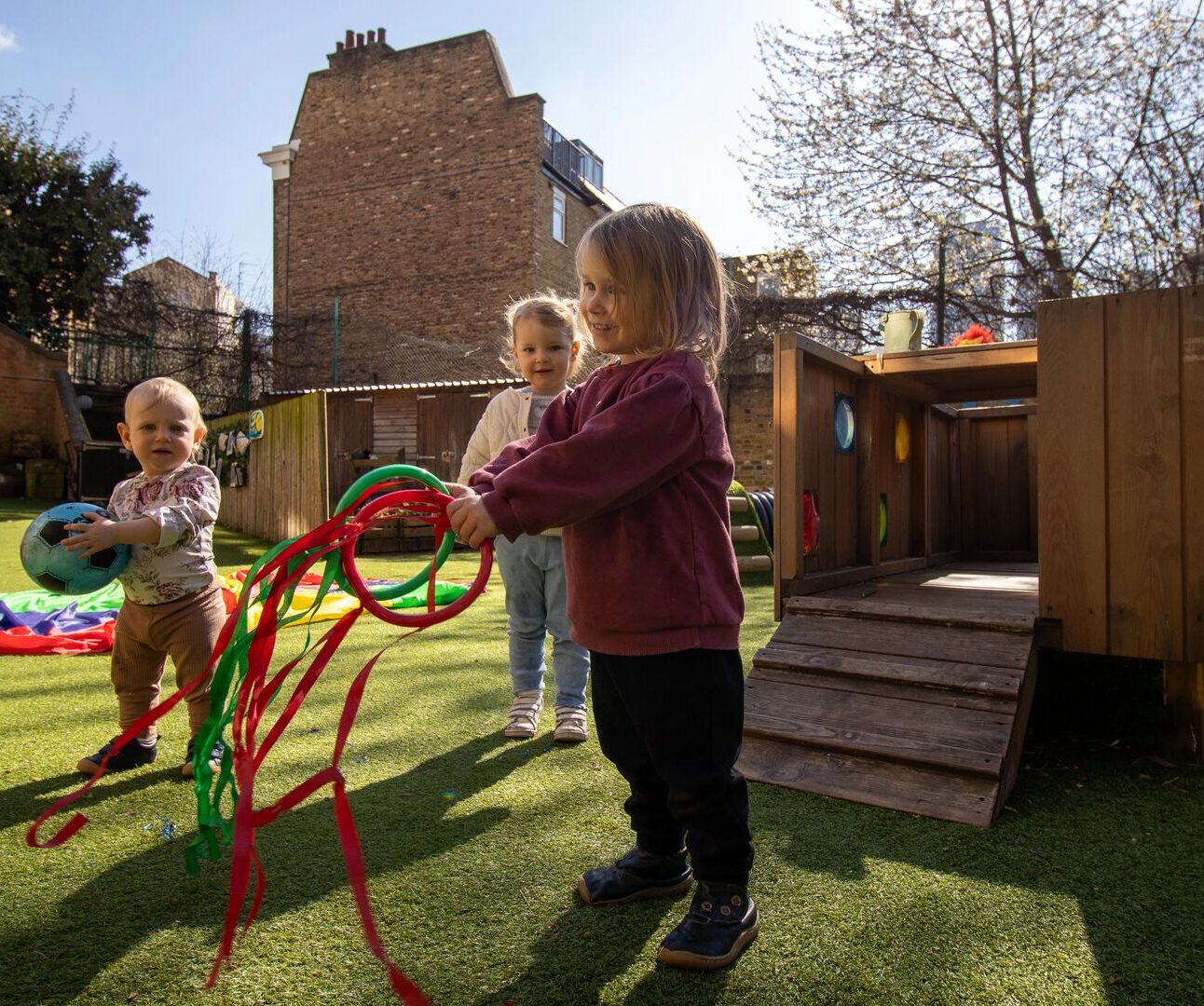
Another Consultation… This time, it’s Space
Just as the ink dries on the Ofsted consultation, up pops another. This time it’s about space, equally important and not to be overlooked. The Department for Education (DfE) has…
October 13th 2014
Last week I gave a speech to the Scottish Pre School Play Association in a hotel which was also full of Liberal Democrat delegates who had come to Glasgow for their annual conference. It was somewhat ironic that in one room, Nick Clegg was complimenting his party on the policy of providing Two Year Olds from poor families with “free” childcare while along the corridor our Scottish colleagues were hearing from me how to provide quality and support for those very children while our Government continues to underfund the initiative.
The SPPA conference opened with the Dunblane Children’s Choir singing songs from Oliver, their voices soaring to “Food Glorious Food, Wonderful Food”. I wonder if there was even a touch of discomfiture from our neighbouring political audience given that Glasgow has the highest number of food banks in the UK. Or for those nearer to home read the London Mayor’s Report A Zero Hunger City: Tackling Food Poverty in London.
Only the week before at the Labour Party Conference I was invited to join a panel for Feeding The Next generation: Are We failing Our Children? chaired by Demos which produced ‘For Starters’ a research paper on the subject, sponsored by Danone who have also produced some research.
The panel included David Lammy MP and Andy Burnham our Shadow Health Secretary (also known as the ‘Frostie Killer’ because of his objection to the high sugar level in the breakfast cereal).
The subject was all about food and physical health. I challenged them to remember that good nutrition needs to begin in the early years because it’s almost too late by the time children get to school. Almost a quarter of British children are overweight by the time they start Primary School and while obesity is highest among older children, about 11% of toddlers that are obese have a 40- 70% chance of becoming obese adults. Diet related ill health costs the NHS £5.8billiom every year with childhood obesity related illnesses such as asthma in England costing £51m per year. Just think how many places for small children that could fund!
Many of us have been working to improve nursery food and nutrition for children and create a healthy food culture for at least the last five years. It’s has increased my interest in food and nutrition so that now I regularly listen to the Radio Four Food Programme, Masterchef and Saturday Kitchen. The patient LEYF chefs have indulged my passion and supported many initiatives to improve children’s menus by making them far more seasonal using locally sourced food, introducing oily fish twice a week, having chef apprentices, leading menu planning meetings with the children, reviewing procurement and much more. I will be interested to see if the Government’s new plan for Public Procurement will be useful to source food from companies with ethical, environmental and social considerations.
I have long admired the work done by sector colleagues such as the work done by Linda Baston Pitt at the Old School House Nursery and their programme to link health and fitness and develop the PANco role. We have worked closely with the Children’s Food Trust to agree a set of guidance. The PreSchool Learning Alliance has also produced some great guidance as well as has The Infant & Toddler Forum
We hope to achieve the Soil Association catering mark soon. And it’s not all about childcare organisations, as the Chair at Paddington Farm, I have learned how to connect children in the city with the country.
One way to embed a culture of healthy food is to train those who cook. I was surprised to find there was no specific occupational standards for chefs working with children under eight years. I set about fixing that by writing the Standards with the help and advice of many already mentioned as well as dieticians in Kensington and Chelsea. The result is the ‘L2 Diploma in Food Preparation and Cooking in Early Years’ a qualification designed to help chefs cook from a child’s point of view; that includes the procuring the right foods, serving the right portions and presenting in the right way.
It is written (with chef input) to give chefs confidence and knowledge around children’s nutritional needs which are quite different to adults. The Standards are also designed to strengthen the important roles chefs play in educating staff and parents and influencing children to become the next generation of healthy and informed foodies. Early Years chefs are not just someone in a kitchen but increasingly a crucial member of a team working to ensure children are safe, fit and healthy.
The Early Years Awarding Body Cache agreed to accredit these new standards. So if you want to help your chef provide the best food and nutritional services for children and families in your settings and beyond, click on the link and sign up your chef to become nursery food pioneers.

Just as the ink dries on the Ofsted consultation, up pops another. This time it’s about space, equally important and not to be overlooked. The Department for Education (DfE) has…

How I Learned to Stop Worrying and Love the Kill Switch! This is AI blog number four, and by now I thought I’d be off down the rabbit hole exploring…

Are children deprived of the opportunity to play?… …is not a new question, but one that continues to be tackled on many levels. Greg Bottrill’s book ‘Can…